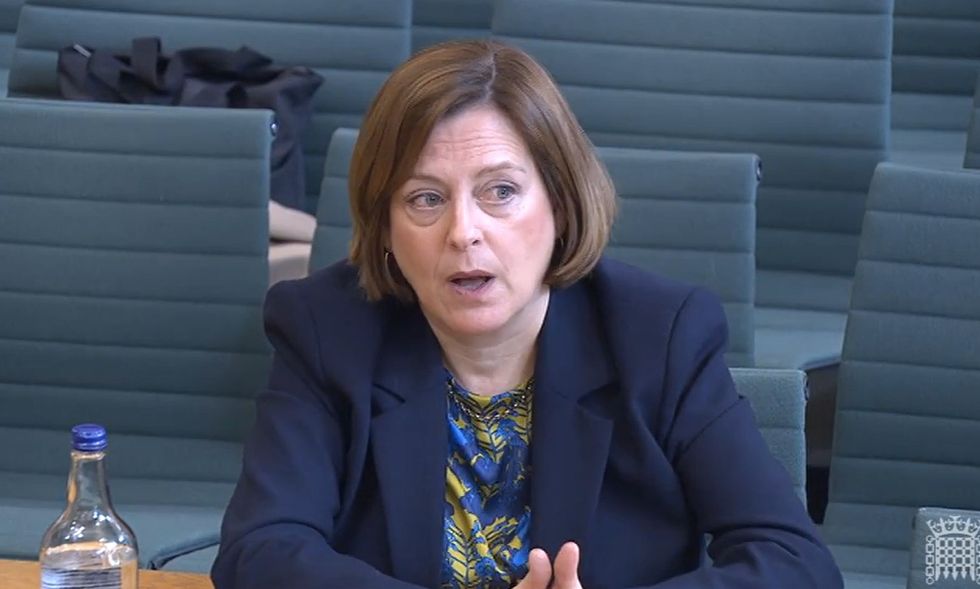Millions of British adults will be forced to prove their age using facial recognition and other “robust” methods before accessing websites with pornographic content, under tough new rules set to be implemented in July.
Developed by industry watchdog Ofcom, websites that fail to implement strict age verification systems by the deadline will face “enforcement action”.
Major platforms, such as Pornhub, OnlyFans and social media sites that permit adult content, like X (formerly Twitter), will be required to verify users’ ages through methods such as a photo ID scan, facial recognition, or mandatory credit card checks. These websites are visited millions of times every day.
OnlyFans alone enjoys an average of 20 million visitors each month in the UK. The website allows creators to charge a monthly fee to unlock access to their original content. Originally intended as a platform, like Patreon and Substack, for use by musicians, writers, and influencers, OnlyFans has become synonymous with pornography.

Michelle Donelan spearheaded the Online Safety Act during her time as Secretary of State for Science, Innovation and Technology in the last Government
GETTY IMAGES
The Online Safety Act, introduced by Conservative MP Michelle Donelan two years ago and passed by the House of Commons during Rishi Sunak’s tenure as Prime Minister, grants new powers to Ofcom in a bid to prevent children from accessing harmful content online.
Children in the UK are being exposed to online pornography from an early age, research shows.
Of those who have seen online pornography, the average age they first encounter it is 13 — although more than a quarter come across it by the time they turn 11 years-old (27%), and one in ten are exposed to adult content before thier tenth birthday (10%), findings by the Children’s Commissioner for England confirmed.
Ofcom published guidance on how it plans to enforce its new duties this week.
The regulator has mandated that any website hosting pornographic material must put “robust” age checks in place, marking a significant change in how adult content can be accessed in Britain.
These strict rules will be enforced from July 2025 onwards.
Before then, all social media platforms and search services will be required to carry out a children’s access assessment to determine whether their website is likely to be accessed by children. According to Ofcom, website owners have until April 16, 2025 to complete this critical risk assessment paperwork.
Ofcom said it will then publish codes of practice for sites which are likely to be accessed by children, which will set out how they can implement measures to keep younger users safe. Sites must then complete a children’s risk assessment by July and implement any required measures, which may include age checks.
These checks will be required — regardless of the type of site — if it allows pornography.

Dame Melanie Dawes, Chief Executive of Ofcom, giving evidence to the Digital, Culture, Media and Sport Select Committee at the House of Commons on the work of the regulator she runs
PRESS ASSOCIATION
Ofcom Chief Executive Dame Melanie Dawes said: “For too long, many online services which allow porn and other harmful material have ignored the fact that children are accessing their services.
“Either they don’t ask or, when they do, the checks are minimal and easy to avoid. That means companies have effectively been treating all users as if they’re adults, leaving children potentially exposed to porn and other types of harmful content.
“Today, this starts to change.”

Websites that host adult content will need to implement the checks before July 2025
GETTY IMAGES
Ofcom has listed some of the age-verification methods that can be implemented by websites:
- Open Banking — a regulated system that lets you share certain financial information, like current balance and transaction history, with banks, financial providers, or services
- Photo ID Matching — upload an approved photo-ID document, like a Drivers Licence or Passport, which is compared to an snapshot taken at the moment you started the upload to verify it’s the same person
- Facial Recognition — Advanced scan of your face that can estimate your age based on facial features
- Mobile Network — Some UK mobile providers automatically restrict adult content for all new customers.You can lift this porn ban by proving that you’re an adult to your carrier. In turn, this confirmation can be shared with the online pornography service
- Credit Cards Check — In the UK, credit card issuers are obliged to verify that applicants are over 18 before providing them with a credit card. A user can provide their credit card details to the online pornography service, after which a payment processor sends a request to check the card is valid to the issuing bank
- Digital ID Wallets — This is a combination of several methods, including those listed above users can securely store their age in a digital format, which the user can then share with the website
Dame Melanie Dawes adds: “As age checks start to roll out in the coming months, adults will start to notice a difference in how they access certain online services.
“Services which host their own pornography must start to introduce age checks immediately, while other user-to-user services – including social media — which allow pornography and certain other types of content harmful to children will have to follow suit by July at the latest.
“We’ll be monitoring the response from industry closely. Those companies that fail to meet these new requirements can expect to face enforcement action from Ofcom.”
Ofcom says it’ll be closely monitoring industry response to the new requirements. Companies that fail to comply could face significant penalties, including fines of up to £18 million or 10 percent of their global annual revenue.
More extreme measures could include business disruption, such as having their sites blocked in the UK.
Ofcom is launching an enforcement programme initially focused on sites that publish their own pornographic content. The regulator will contact adult services directly to inform them of their new duties under the Online Safety Act.
Lina Ghazal, Head of Regulatory and Public Affairs at Verifymy — a leading safety technology firm with a focus on safeguarding children, described the announcement as a “pivotal moment in the fight to make the internet a safer place.”
Ghazal added: “The Online Safety Act is set to make 2025 the biggest year for age verification since the Intoxicating Liquor (Sale to Persons under Eighteen) Act 1923 passed over 100 years ago.
“The regulator’s long-awaited guidance on age assurance means adult content providers now have the clarity they need to get their houses in order and put in place robust and reliable methods to keep explicit material well away from underage users.
“As the Online Safety Act rolls out, 2025 must be a year where regulatory talk turns to action and only effective implementation will drive real-world results.”

Under the new law, Ofcom has been tasked with ensuring that only those aged 18 and over will be able to access adult material online, whether that’s on dedicated content aggregators or websites that allow others to upload pornographic material, like X and some other social media
PRESS ASSOCIATION
The UK’s move follows similar age verification pushes internationally, with a third of US states now restricting access to adult websites. Florida and South Carolina became the latest states to enforce age verification laws from January 1, 2025, with Georgia expected to follow in July.
- Nintendo Switch 2 revealed with bigger screen, but no UK price
- Sky Glass TV price crash offers 4K TV for 90p a day
- Best Sky Stream deals
- WhatsApp unveils 4 upgrades to its chat app
- New £179 Android phone wants to offer flagship features to everyone
Some major platforms have resisted these requirements. Pornhub’s parent company Aylo has suspended services in states demanding age checks, arguing the rules are poorly formulated.
The company maintains that age verification should occur at app store level and claims current requirements push users towards less regulated sites.
“Aylo has publicly supported age verification of users for years, but we believe that any law to this effect must preserve user safety and privacy,” a spokesperson told Politico.
Additional Reporting By Martyn Landi, PA Technology Correspondent